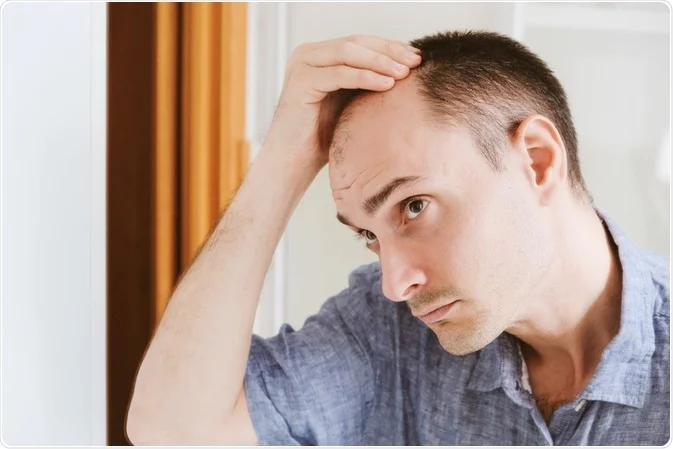What Are The Reasons For Hormonal Hair Loss?

Hormones are chemical ‘messengers” that serve as conduits for carrying information between different body parts. The purpose of their secretion from the endocrine glands is to cause an alteration or impact in a specific organ or tissue. It only takes minor amounts to cause significant alterations in the body. Hormones are thought to be the most common cause of hair loss, both for men and women. These are the six most prevalent hormone-related hair loss conditions that are frequently seen in clinics:
Androgenic hair loss
As the name suggests, this is a “genetically” acquired condition. A hormone called dihydrotestosterone (DHT), which is produced when testosterone is converted into a more potent form, can cause a certain “sensitivity” in both men and women. Men and women both require testosterone, but men have higher levels of the hormone and lower levels of oestrogen, while women have higher levels of oestrogen and progesterone and lower levels of testosterone.
DHT causes miniaturization in your hair by attaching itself to receptors in the hair follicles. This indicates that hair gradually becomes thinner and may eventually cease growing entirely during the cycle of growth, shedding, and regrowth. This kind of hormonal hair loss in women causes “diffused thinning,” which widens the parting and makes the scalp more noticeable. Men usually have a thinning crown and a receding hairline, which can eventually lead to total hair loss at the top of the head.
Thyroid problem
Hormone imbalance is the cause of both of these conditions. Hair loss resulting from severe and protracted cases may appear as “diffuse” thinning of the entire scalp. When the thyroid condition is successfully treated, regrowth is possible. While some thyroid disorders manifest suddenly and require prompt diagnosis, others may go unnoticed for months or even years.
Puberty
During puberty, hormones play a major role in how our bodies function. Dihydrotestosterone (DHT) frequently spikes abruptly, which can cause diffuse hair loss in women and a receding hairline in men. However, hair loss is not a common occurrence for teenagers, and it could be a sign of another health issue that needs to be addressed.
Pregnancy and childbirth
Naturally, there is a significant hormonal shift during pregnancy and childbirth. A woman’s oestrogen production increases during her first pregnancy compared to the rest of her life when she is not pregnant. This causes the hair to remain in the growth phase longer, shed less, and grow noticeably fuller and thicker mane. But three to six months after giving birth, the hormones level out and the regular cycle of hair growth resumes, which frequently leads to significantly more hair loss than usual. Although this can be extremely concerning, hair growth does resume once the hormone levels have “settled back to normal.”
Menopause
Another stage at which hormonal shift occurs is menopause, which is characterized by a decrease in progesterone and estrogen that gives rise to hair loss and a greater emphasis on male hormones. Hair grows more slowly, gets thinner, more “brittle,” and is more prone to damage as a result of shrinking hair follicles.
Stress
Hair loss is frequently attributed to stress, and for good reason. Stress causes the body to release hormones like testosterone, adrenaline, and cortisol, which can affect the hair follicle and suppress oestrogen, leading to hair loss.
With proper care and treatment the hormone induced hair loss can be treated effectively. Book a trichological consultation now at Trichologistlondon.com for right scalp treatment.




Thanks for sharing. I read many of your blog posts, cool, your blog is very good.